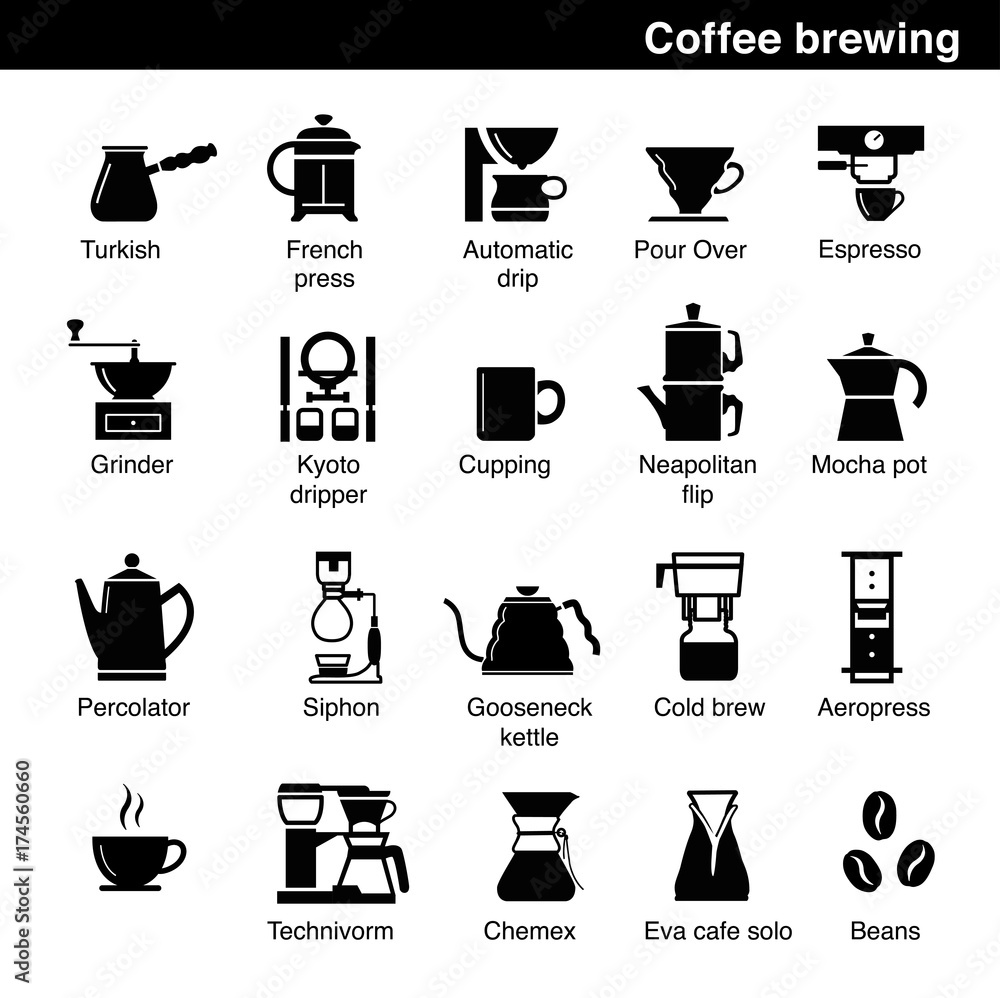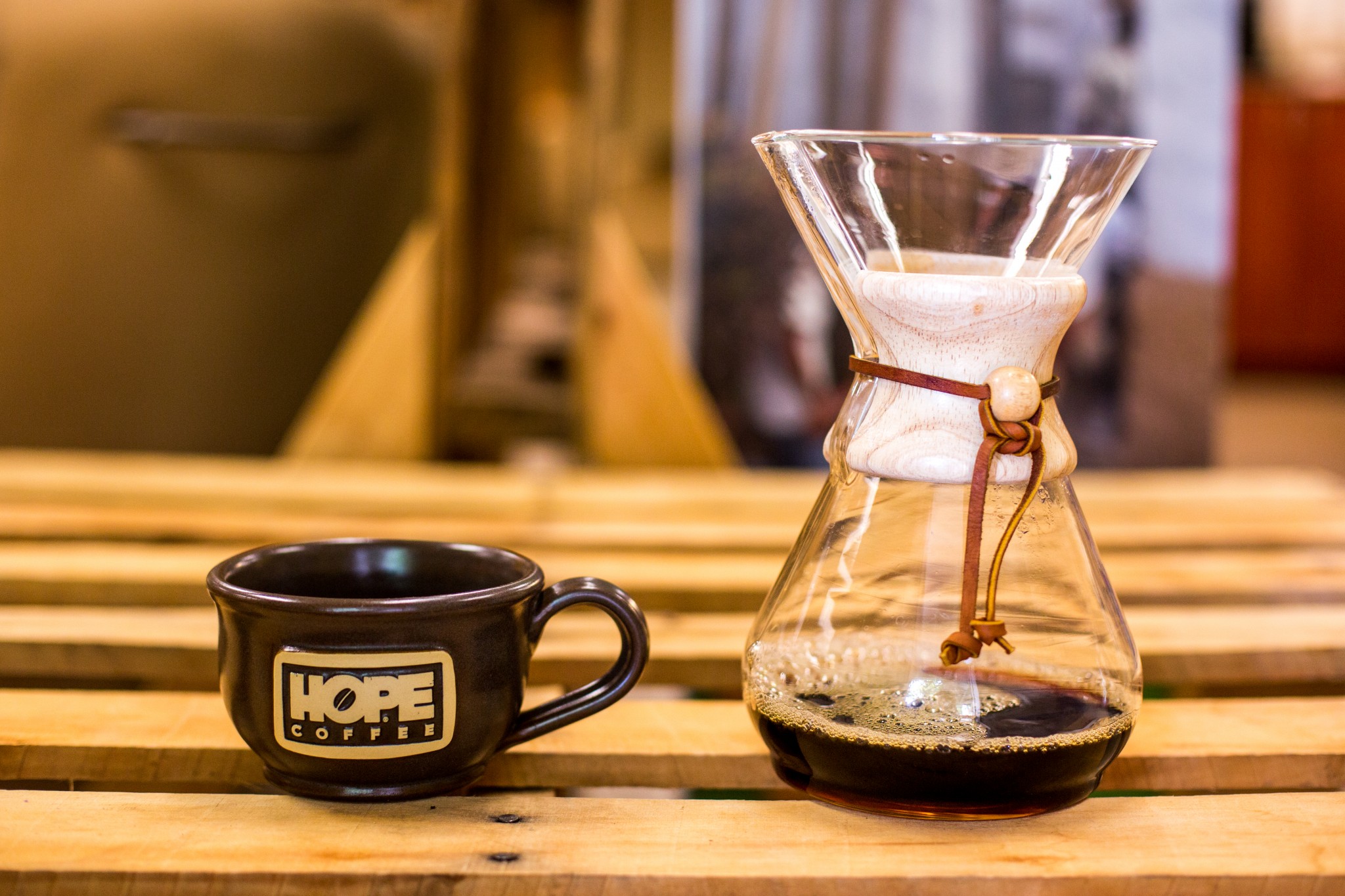Coffee Brewing Methods Debunked: From French Press to Cold Brew
Coffee Brewing Methods Debunked: From French Press to Cold Brew
Blog Article
The Science Behind Coffee Brewing: Exactly How Temperature and Time Affect Your Beverage
Comprehending the science behind coffee brewing discloses that temperature level and time are not plain variables yet critical elements that dictate the beverage's flavor profile and general top quality. The optimal brewing temperature level commonly falls in between 195 ° F and 205 ° F, while the duration of removal differs substantially across various techniques. This interaction of variables can cause a cup that is either wonderful or disappointing. As we check out the nuances of these elements, the question arises: just how can one properly equilibrium temperature level and time to attain that perfect brew?
The Chemistry of Coffee Extraction
The chemistry of coffee extraction explores the complex procedures that change raw coffee beans into the fragrant beverage delighted in worldwide. This transformation largely includes the solubility of various substances present in the beans, which are affected by elements such as grind size, water top quality, and the developing approach used.
Throughout the developing procedure, warm water serves as a solvent, removing soluble compounds, consisting of caffeine, sugars, lipids, and acids, from the coffee grounds. Each substance adds to the flavor account, aroma, and body of the last drink. For circumstances, acids are liable for brilliant and tangy notes, while oils add to a rich mouthfeel.
The preliminary phases of developing remove acids and sugars, leading to a positive acidity, while long term removal can lead to resentment due to over-extraction of undesirable substances. Understanding these chemical communications is vital for optimizing developing techniques, as the balance in between removal time and water temperature can substantially influence the general top quality of the coffee.
Perfect Brewing Temperatures
Finding the right developing temperature is crucial for unlocking the complete possibility of coffee tastes and scents - coffee brewing methods. Research study indicates that the optimum array for brewing coffee exists between 195 ° F to 205 ° F(90 ° C to 96 ° C) Within this array, the removal procedure efficiently liquifies the preferable soluble compounds in coffee beans, causing a well balanced and savory mug
Brewing at lower temperature levels, such as below 195 ° F(90 ° C ), might result in under-extraction, producing a weak and acidic brew with muted tastes. On the other hand, brewing at temperatures exceeding 205 ° F(96 ° C) can lead to over-extraction, creating a rough and bitter preference due to the extreme dissolution of undesirable substances, such as tannins.
Moreover, the ideal developing temperature can vary depending upon the coffee bean kind and roast level. Lighter roasts commonly profit from a little higher temperatures to enhance their intricate flavor profiles, while darker roasts might be much better fit to reduced temperature levels to minimize anger.
Eventually, keeping accuracy in developing temperature levels is important for accomplishing an unified balance of flavors, guaranteeing that every cup of coffee supplies a gratifying sensory experience.
Impact of Developing Time
Developing time plays a pivotal duty in figuring out the flavor profile and total top quality of coffee. Shorter brewing times can result in under-extraction, leading to a sour or weak try here taste, as not adequate soluble substances are dissolved.
Optimal developing time varies depending upon the approach made use of and the work size of the coffee. A French press typically requires concerning four minutes, while coffee removal is typically finished within 25 to 30 seconds. It is vital to calibrate developing time in conjunction with various other variables, such as water temperature and coffee-to-water ratio, to achieve the wanted flavor profile.
Recognizing the impact of brewing time makes it possible for coffee fanatics to fine-tune their developing techniques, inevitably enhancing the sensory experience of their mug (coffee brewing methods). With cautious focus to this variable, one can unlock the complete potential of the coffee, disclosing its unique features and nuances
Developing Methods and Their Impacts

As an example, techniques like French press and cool brew enable a much longer steeping time, resulting in a fuller body and robust flavor due to boosted removal of oils and soluble solids. On the other hand, coffee brewing makes use of high pressure and a shorter removal time, producing a focused shot that stresses intense flavors and an abundant crema.
Pour-over techniques, such as Chemex or V60, provide an even more regulated removal process, websites enabling the brewer to manipulate flow rate and water circulation, which can boost illumination and quality. Meanwhile, percolation methods cycle water through the coffee grounds numerous times, leading to a stronger, commonly bitter taste.
Finally, the use of paper filters versus metal filters can also influence the last taste; paper filters normally generate a cleaner cup by capturing oils and great bits, while metal filters allow even more oils to pass through, adding to a fuller mouthfeel - coffee brewing methods. Recognizing these subtleties can raise the coffee experience considerably
Tips for Perfecting Your Mixture
A well-executed brew can change also the most basic coffee right into a remarkable experience. Grind the beans just prior to brewing to maximize quality, making certain the grind size matches your brewing method-- coarser for French press and finer for espresso.
Water quality plays an important role; usage filtered water devoid of impurities. The perfect brewing temperature level ranges in between 195 ° F and 205 ° F(90 ° C to 96 ° C ) Also hot can burn the coffee, while also amazing might under-extract flavors.
Timing is similarly crucial. For immersion approaches, steeping for 3 to 5 minutes is optimum, whereas drip methods typically take about 5 mins. Experiment with brew times to discover your recommended toughness.

Conclusion
In summary, the elaborate connection between temperature and time is paramount in the coffee brewing procedure. Recognizing these clinical principles encourages individuals to fine-tune their brewing techniques, ultimately leading to an extra balanced and pleasurable coffee experience.
Understanding the scientific research behind coffee developing reveals that temperature and time are not plain variables however pivotal components that determine the drink's taste account and general high quality. Recognizing these chemical communications is important for enhancing brewing techniques, as the balance between extraction time and water temperature can dramatically influence the total high quality of the coffee.Developing time plays a critical duty in establishing the flavor account and overall top quality of coffee. By concentrating on these elements-- bean top quality, grind size, check my source water temperature level, steeping time, and proportion-- you can raise your coffee brewing procedure, resulting in a regularly exceptional cup.
In recap, the intricate relationship in between temperature and time is paramount in the coffee brewing process.
Report this page